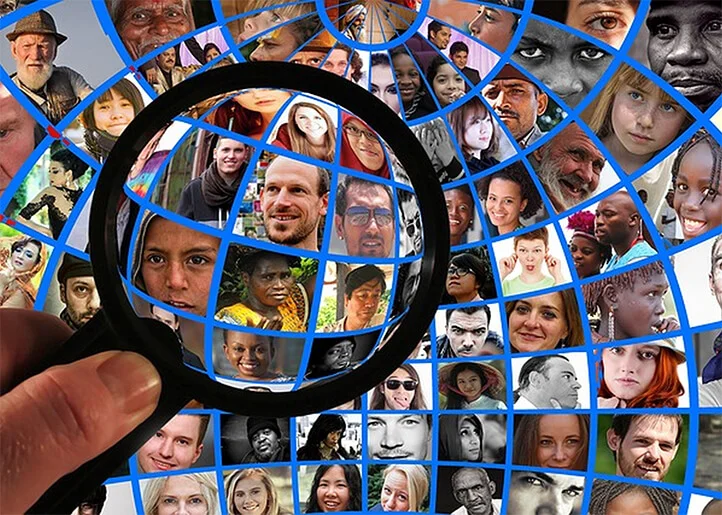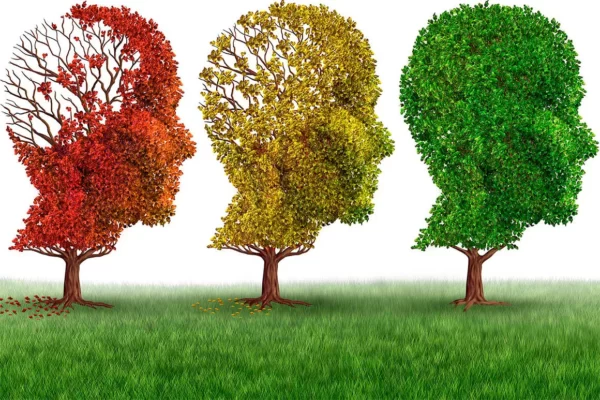Social psychology is a scientific discipline that studies how an individual’s perception, thinking, feelings, and behavior are shaped and changed by the influence of others. It explores how people interact with each other and respond to social stimuli. The key aspects of social psychology include the study of social perception, attitudes, beliefs, group behavior, interpersonal relationships, biases, and many other social processes.
Social psychology is highly significant. Here are several reasons why it is considered an important discipline:
- Behavior: Social psychology helps to understand how the environment and other people affect our behavior, thinking, and feelings.
- Interpersonal Relationships: It provides tools to understand the dynamics of interpersonal relationships, which helps improve communication and mutual understanding.
- Decision-Making: Understanding how social factors influence decision-making leads to more conscious and deliberate actions.
- Social Issues: Social psychology can offer solutions to various social problems, such as bias, discrimination, and conflicts.
- Advertising and Marketing: For professionals in marketing and advertising, understanding the principles of social psychology is critical for creating effective advertising campaigns.
- Education: Teachers can use the principles of social psychology to create a more productive learning environment.
- Business and Leadership: Leaders and managers can use knowledge from social psychology to improve group dynamics and increase team productivity.
- Health: Understanding how social factors affect the body helps in developing health prevention and support programs.
- Politics: Understanding social psychology helps politicians and public figures craft messages and campaigns that resonate with voters.
- Self-awareness: Studying social psychology helps people better understand themselves, their motives, and their interactions with the surrounding world.

Social Psychology: A Historical Overview
The roots of social psychology go back to ancient times when philosophers pondered the nature of human behavior in society. However, it managed to become a distinct scientific field only in the late 19th and early 20th centuries. During this period, the scientific community began actively researching how social factors and interactions with others influence individual behavior, thinking, and feelings.
In ancient civilizations—from Greece to China—philosophers and scholars contemplated how society is structured and what factors determine human behavior within that society. However, early theories were often more philosophical than empirical, based on observations and reflections rather than systematic experiments.
With the advent of the Industrial Revolution and urbanization, society became more complex and multifaceted, necessitating a more detailed study of social interactions. The emergence of psychology as a scientific discipline in the 19th century gave impetus to the development of social psychology, turning it into an actively evolving and important research field.
Ancient Period
Long before social psychology became a formal discipline, ancient Greek philosophers such as Plato and Aristotle pondered questions about the nature of human society, interpersonal relationships, and the influence of the group on the individual.
They reflected on social identity, norms, and role behavior. Similar ideas also emerged in other ancient civilizations, including Chinese and Indian philosophies.
Emergence of Social Psychology as a Scientific Discipline
With the onset of the Industrial Revolution and rapid socio-cultural changes in the 19th century, there arose a need for a deeper understanding of social phenomena. At that time, the first studies relevant to social psychology began to be conducted in Europe and America.
These included works on social perception, stereotypes, and conformity. One of the first experiments in this field was the famous 1898 study by Triplett on social competition.
Development in the 20th Century and Beyond
In the 20th century, social psychology actively developed, especially after World War II, when many researchers sought to understand the causes of Nazi atrocities and genocide. This period was marked by studies on bias, authoritarianism, and conformity.
Research such as Solomon Asch’s experiment on group pressure and Stanley Milgram’s experiment on obedience to authority became classics in the field of social psychology. Over time, the discipline became increasingly diverse, including topics such as social influence, attitudes, intergroup relations, and social cognitive psychology.
Today, social psychology is a rapidly developing field of psychology that has found applications in many other disciplines, including business, politics, healthcare, and education, and continues to provide valuable insights into the nature of human behavior in a social context.

Key Figures and Their Contributions to the Development of Social Psychology
Throughout the history of social psychology, many scholars have made significant contributions to the development of this discipline. Below are some of the most prominent figures and their major achievements:
- Norman Triplett. Conducted one of the first experimental studies in social psychology, examining how the presence of others affects an individual’s performance (the audience and co-action effects).
- Max Ringelmann. Described the “Ringelmann effect,” which indicates a reduction in individual effort when working in a group.
- Solomon Asch. Conducted famous experiments on group pressure, exploring how people conform to social influence.
- Leon Festinger. Proposed the theory of cognitive dissonance, which shows how people strive to reduce psychological tension caused by conflicting beliefs or actions.
- Stanley Milgram. Conducted obedience experiments demonstrating the extent to which ordinary people could perform cruel actions under the influence of an authoritative figure.
- Henri Tajfel. Developed the social identity theory, explaining how people identify themselves in various social groups and how this affects their attitudes toward “in-group” and “out-group” members.
- Elliot Aronson. Developed theories on social perception and decision-making, and introduced the concept of “burning curiosity,” which describes a person’s motivation to learn.
- Albert Bandura. Introduced the concept of social learning, demonstrating the human ability to learn not just from personal experience but also by observing others’ behavior.
These are just a few of the many scholars who have made significant contributions to social psychology. Their research and theories have left a deep impact on the understanding of human behavior in a social context.

Social Psychology: Key Concepts and Theories
Social psychology is the study of how individuals’ thoughts, feelings, and behaviors are shaped by the actual or imagined presence of others. Over decades of development, this discipline has generated a number of key concepts and theories that attempt to explain the complex processes of human interaction within a social environment.
The core concepts and theories of social psychology provide insight into phenomena such as social influence, stereotyping, attitudes, intergroup relations, and many others. They help both scholars and laypeople understand the mechanisms of social interaction and predict and explain their own and others’ behavior in various social situations.
Social Exchange Theory
Social exchange theory is one of the key concepts in social psychology that views interpersonal relationships through the lens of economic reasoning, suggesting that interaction between people can be seen as an exchange of resources.
Key Principles:
- Mutual Benefit: People engage in social interactions seeking benefits for themselves. These benefits can be material or non-material, including emotional satisfaction, social recognition, and more.
- Balance of Costs and Benefits: Individuals aim to minimize their costs and maximize their benefits in relationships. If a relationship brings more costs than benefits, it may be terminated or reconsidered.
- Comparison of Alternatives: People evaluate their relationships based on available alternatives. If existing relationships seem less attractive compared to possible alternatives, a person may change or end them.
Application: Social exchange theory is often used to analyze interpersonal relationships, such as friendship, romantic relationships, and family ties. It helps explain why some relationships are long-term and stable, while others end quickly.
Criticism: Although social exchange theory is a valuable tool for understanding interpersonal relationships, it is often criticized for oversimplifying complex human interactions and for presenting people solely as rational and calculating beings.
Cognitive Dissonance Theory
Cognitive dissonance theory is an important concept in social psychology proposed by Leon Festinger in 1957. It examines the tension and discomfort a person experiences when confronted with contradictory or inconsistent information relative to their existing beliefs or views.
Key Principles:
- Inconsistency: Cognitive dissonance occurs when an individual has two or more contradictory statements, beliefs, or perceptions.
- Striving for Harmony: People naturally strive for psychological equilibrium and reduce dissonance by changing their beliefs or behavior.
- Changing Beliefs or Behavior: To eliminate dissonance, an individual may change their beliefs, justify their behavior, or seek information that confirms their views.
Application: Cognitive dissonance theory has been applied in many fields, including advertising, marketing, politics, and education. For example, if people spend a lot of money on a purchase they are not satisfied with, they may change their opinion about the product to reduce dissonance.
Criticism: The theory of cognitive dissonance is criticized for lacking precise metrics to measure dissonance and for the difficulty of predicting exactly how people will respond to contradictory information.
Social Influence Theory
Social influence theory explores how people change their views and behavior under the influence of others, whether through direct interaction, observation, or indirect impact. This concept is one of the core ideas in social psychology. It reveals the dynamics of group influence and social pressure.
Key Principles:
- Social Conformity: People often adjust their views or behavior to align with the majority to be accepted by the group or to avoid social pressure.
- Types of Social Influence: There are various forms of social influence, including persuasion (impact of arguments), obedience (blind following of authority), social learning (through observing others), and normative influence (the desire to conform to social norms).
- Minority Influence: Although the majority often exerts strong pressure, the minority can also influence changes in others’ opinions or behavior.
Application: Social influence theory is used in many fields, such as advertising, politics, leadership, and education. It helps explain why people follow the crowd, how opinions are formed, and why a person may change their beliefs under the influence of others.
Criticism: Critics point out that people are not always susceptible to social influence or may react to it differently depending on the situation, culture, or personal characteristics. Thus, it is important to consider social influence in context and account for multiple factors affecting human behavior.
Attribution Theory
Attribution theory studies the processes through which people interpret and explain the causes of their own behavior and the behavior of others. These attribution processes, or explanations, are quite significant for understanding the world around us, our relationships, and our own place in society.
Key Principles:
- Internal and External Attributions: The causes of human behavior can be explained by internal factors (personal characteristics) or external circumstances (situational factors).
- Fundamental Attribution Error: This term describes people’s tendency to overestimate the influence of internal factors in others’ behavior while ignoring external circumstances.
- Actor-Observer Effect: This describes people’s tendency to attribute their own behavior to external factors or circumstances, while when evaluating others’ behavior, they tend to attribute it to internal characteristics or personality traits of the observed. In other words, when we act, we often think our behavior is caused by circumstances. But when we observe others’ actions, we tend to think their actions are due to their personality traits.
Application: Attribution theory plays a key role in many aspects of interpersonal relationships and public life, such as self-perception, stereotypes, relationship formation, and even politics. Understanding attribution processes helps resolve conflicts, improve communication, and increase self-awareness.
Criticism: Despite the contribution of attribution theory to social psychology, it is criticized for being overly simplistic or not accounting for cultural differences in attribution processes. Furthermore, sometimes people may act not based on logical or reflective attribution processes but under the influence of emotions or intuition.

Social Perception
Social perception is the process through which we learn, interpret, and draw conclusions about social information around us. It is how we perceive other people and their actions and how we form impressions and create images based on this data. The essence of the process is not merely about seeing or hearing but about the meanings we assign to our observations.
Every day, we encounter an endless flow of social information: facial expressions, gestures, actions, words, and even the clothing of people. How we navigate this flow, select the most important information, and form judgments based on it is a key part of our social interaction.
Studying social perception is crucial for understanding interpersonal relationships, public opinion, and many other aspects of social life. It helps explain why misunderstandings, stereotypes, or biased views sometimes arise and how to work on overcoming them.
Stereotypes, Bias, and Biased Expectations
Stereotypes, bias, and biased expectations are key components of social perception that play a crucial role in how we interact with and interpret the surrounding world.
- Stereotypes are simplified and generalized beliefs about members of a particular group, based on certain characteristics or qualities that are assumed to be common to that group. Stereotypes are most often based on gender, race, age, nationality, and many other factors. Although stereotypes may have roots in some truthful observations, they often distort or oversimplify these observations, ignoring individual differences within groups.
- Bias is an unobjective or disproportionate attention to certain aspects of information. This can manifest in the form of cognitive distortions, where we pay more attention to information that confirms our beliefs and ignore or dismiss conflicting information.
- Biased expectations occur when our stereotypes or beliefs influence our expectations and behavior in a way that elicits or confirms those stereotypes. For example, if a teacher expects a certain student to misbehave based on a stereotype, they may unknowingly interact with the student in a way that provokes such behavior.
Overall, understanding these aspects of social perception is vital for developing more objective, fair, and effective ways of interacting with the surrounding world.
The Attribution Process
The attribution process refers to the way we explain the causes of behavior and events. It is how people interpret and understand the actions of others, as well as how they explain their own actions. When certain events occur, or when we observe others’ behavior, we automatically try to understand why this is happening.
The attribution process includes:
- Internal vs. External Attribution: Determining whether the cause of behavior is internal (based on personal characteristics or individual choice) or external (due to circumstances or external factors).
- Stable vs. Unstable Attribution: Deciding whether the cause is consistent or temporary.
- Controllable vs. Uncontrollable Attribution: Assessing how much control the individual has over the cause.
Attributions can be distorted by various factors. For instance, people tend to explain their successes with internal factors (“I got a good grade because I studied hard”) but their failures with external circumstances (“I failed the exam because of the noise in the room”).
Understanding the attribution process helps clarify how perceptions and judgments affect our interpersonal interactions and relationships.
The “Galatea Effect” and Self-Fulfilling Prophecies
A self-fulfilling prophecy is a phenomenon where an expectation or assumption about a future event or behavior influences the actual occurrence of that event or behavior. Essentially, an expectation, whether accurate or not, can cause behavior that makes this expectation a reality.
A classic example of a self-fulfilling prophecy is a teacher who believes a certain student has high potential. Because of this belief, the teacher may provide more opportunities, support, and attention to the student, ultimately leading to improved performance by that student.
The “Galatea Effect” is a subset of self-fulfilling prophecy that relates to how belief in someone’s ability can enhance their performance. The name comes from Greek mythology, where the sculptor Galatea falls in love with a statue he created, and it comes to life through his love and belief in it.
In the context of this effect, if people (such as teachers, parents, or leaders) genuinely believe in another person’s abilities, this can stimulate them to perform better and achieve greater success. Conversely, a lack of belief can suppress or limit a person’s potential.
In both cases, the key idea is that our expectations and belief in others’ abilities can influence their actual behavior and achievements.

Social Influence
Social influence is one of the most studied and debated areas in social psychology.
Every day, we interact with the people around us—friends, colleagues, family members, and even strangers. These interactions directly or indirectly affect our decisions, views, and behavior.
Studying social influence allows us to better understand how our beliefs are formed, why we sometimes follow the crowd, and how various social forces shape or change our behavior.
Conformity and Obedience
Conformity and obedience are two important aspects of social influence studied in social psychology. They refer to how people respond to the instructions or expectations of others, especially authority figures.
- Conformity describes a situation where a person adopts the opinion or behavior of another due to real or perceived social pressure, even if that opinion or behavior does not align with their personal beliefs or preferences. This often happens when an individual faces social pressure from a group and chooses to join the majority to avoid conflict or dislike.
- Obedience, on the other hand, involves complying with orders or instructions from those perceived as authority figures. Unlike conformity, obedience is often associated with explicit demands or instructions and may be motivated by fear of punishment or the desire for a reward.
Social Norms and Socialization
In every society or culture, there are certain rules that regulate the behavior of its members. These rules, known as social norms, play a key role in shaping behavior and relationships between people.
- Social norms are unspoken or formalized expectations and standards that define what is considered acceptable or unacceptable behavior within a particular social group or society. These norms can cover everything from communication manners and clothing to more complex issues such as morality and ethics. Norms primarily serve to maintain social order and strengthen social bonds.
- Socialization is the process through which individuals learn to accept and follow these norms. From birth and throughout life, people learn to behave and define values according to their society or culture. This process begins in the family, continues in school, among friends, and in other social groups.
Groupthink and Group Pressure
Groups play an important role in people’s lives, influencing their decisions, views, and actions. However, group dynamics can sometimes lead to unexpected and even undesirable outcomes, especially when it comes to decision-making processes and social pressure. Groupthink and group pressure are two key concepts that help understand this dynamic.
- Groupthink is a psychological phenomenon where group members begin to seek consensus and avoid conflict, which can lead to poor or erroneous decisions. In conditions of groupthink, critical thinking and individual responsibility are often suppressed to maintain harmony in the group. As a result, the group often makes decisions that would have been rejected with more careful and objective analysis.
- Group pressure, also known as social pressure, refers to the process where individuals feel pressure from the group to comply with certain norms or perform certain actions, even if it contradicts their personal beliefs or desires. Solomon Asch’s experiment showed how strong this pressure can be and how it affects human behavior.
Understanding the mechanisms of groupthink and group pressure helps identify and counteract potential problems associated with social interaction and decision-making in groups.

Interpersonal Relationships
Interpersonal relationships form the foundation of any individual’s social life. From early childhood to old age, we constantly interact with those around us. These interactions shape our personality, influence our self-awareness, and contribute to our social development.
Depending on their quality, nature, and duration, interpersonal relationships can have either a positive or negative impact on our psychological state, well-being, and overall life satisfaction. They can be a source of joy, support, and confidence, or conversely, they can cause conflicts, anxiety and depression.
The study of interpersonal relationships within social psychology provides an understanding of how these relationships are formed, developed, and changed, as well as what factors influence their quality and dynamics. This field helps us better understand the mechanisms underlying humane interactions and relationships throughout all stages of life.
Attachment
Attachment is a deep and enduring emotional bond that forms between two people, motivating them to seek closeness with each other, especially in moments of stress and anxiety. The attachment process begins in early childhood, with initial forms of such bonds typically developing between a child and their caregiver. These early forms of attachment can influence the relationships and behavior of an adult.
British psychologist John Bowlby, considered the founder of attachment theory, suggested that a child’s ability to form a stable attachment by a certain age is a key element in normal psychological development. According to him, secure attachment to a caregiver in early childhood promotes self-confidence, self-esteem, and the ability for self-improvement.
However, not all children develop what could be called a “secure” attachment style. Some children may develop “anxious” or “avoidant” attachment styles, which affect their self-perception and interaction with others. The study of attachment and its role in personality development and relationships has become one of the central directions in the field of social psychology.
Attraction and Love
Attraction and love are two of the greatest forces driving human relationships, shaping social bonds, and having a decisive impact on our lives. Attraction can be described as an initial pull toward another person on a physical, intellectual, or social level. It often arises in the first moments of acquaintance and frequently serves as the impetus for the development of deeper relationships.
- Attraction is based on several factors, such as physical attractiveness, similarity of interests, proximity, or even situational circumstances. However, over time, this initial attraction can evolve into love.
- Love is a more complex and multifaceted emotion that combines passion, attachment, and care for another person. Love can manifest in different forms, from romantic attachment between partners to a parent’s selfless care for a child.
Understanding the nature of attraction and love, their similarities and differences, and the mechanisms underlying them is key to understanding human nature and interpersonal relationships. These emotions and feelings play a crucial role in social life, determining how we interact with the world and with others.
Conflicts and Their Resolution
Conflicts inevitably arise in everyone’s life. They can result from differences in opinions, values, interests, or needs. In fact, conflict is an integral part of interpersonal relationships and can occur in everyday situations as well as in broader spheres, such as relationships between groups or even countries.
Conflict is not always negative. In some cases, it stimulates creative thinking, leads to a better understanding of a problem, or even strengthens mutual understanding and closeness between people. However, unresolved or improperly managed conflicts can cause stress, irritation, anxiety, and even violence.
Conflict resolution is the process through which opposing parties try to find ways to overcome disagreements and reach a mutually acceptable solution. Social psychology offers many approaches and techniques aimed at helping people resolve conflicts. By understanding the causes of conflicts and learning methods for their resolution, we can build more harmonious and productive relationships with others.

Group Processes
In a world where social connections play a key role, group processes become an integral part of our daily lives. Groups have their unique dynamics, which influence the thinking, feelings, and behavior of each member. From casual friendly gatherings to organized work meetings, group processes form the foundation of many social interactions.
A group is not just a gathering of people; it is a dynamic system in which participants interact with each other, forming common norms, values, and expectations. Understanding group processes helps to comprehend how opinions are formed, decisions are made, and leaders emerge within the group.
Formation and Dynamics of Groups
Groups are formed for various reasons and follow their own internal patterns of development. From the first acquaintance to complex structures of interaction, groups go through several stages, each characterized by its unique features.
When forming a group, the primary focus is on the common interests, goals, or needs of the participants. This can be a union based on professional interests, shared hobbies, or simply a desire to solve a specific problem. Gradually, the group begins to form its internal norms, rules, and roles that help participants coordinate their actions and interact with each other.
However, the formation of a group is just the beginning. Over time, the group faces various challenges, such as conflicts, decision-making, or adaptation to changing conditions. This dynamics, in turn, shapes and changes the group’s character, structure, and way of interaction among its members. Studying these processes helps to better understand how groups develop and function at various stages of their existence.
Group Interaction and Roles within the Group
Group interaction is a dynamic process where participants interact with each other, using various forms of communication, influence, and cooperation. However, this process is not chaotic. Within any group, certain roles are formed that determine the behavior and expectations of each of its participants.
Roles within a group can be formal or informal. Formal roles are usually set by the organization or another higher structure and have clearly defined responsibilities and expectations. For example, the role of a leader in a workgroup or a captain in a sports team. Informal roles, however, naturally arise in the process of group interaction and reflect the individual qualities, skills, or status of group members. This could be the group’s “ideologist,” “joker,” or “peacemaker.”
Each role within the group is important as it contributes to its effectiveness and cohesion. However, role expectations can also become a source of conflict when they clash with the personal beliefs or interests of the participants. Therefore, understanding group interaction and role dynamics allows for deeper insight into the essence of social processes occurring within the group and optimizing its work.
Leadership and Power in the Group
At the core of many group processes lie the concepts of leadership and power. These concepts are closely related to how group members coordinate their actions, make decisions, and respond to challenges. Although the two terms are often used interchangeably, they reflect different aspects of group dynamics.
- Leadership is primarily associated with direction, motivation, and inspiration within the group. Leaders possess unique qualities or skills that allow them to influence others, motivate them to take action, and shape a common goal or vision. They serve as a guide for the group, providing direction and meaning.
- Power, on the other hand, refers to an individual’s or group’s ability to influence the behavior of others, often using resources such as knowledge, status, or control over assets. While leadership is often based on trust and respect, power can be based on more formal or structural aspects of group dynamics.
Understanding the difference between leadership and power, as well as how these elements manifest in various group contexts, is crucial for realizing how groups function and how individuals interact within these groups.

Application of Social Psychology
Social psychology doesn’t just provide theoretical knowledge about individual behavior in social contexts; its principles are actively applied across various areas of life. From business and advertising to education and healthcare, understanding social interactions plays a key role in optimizing human relationships and increasing the efficiency of organizations.
The application of social psychology can be as diverse as it is practical. Businesses can use its principles to improve teamwork, increase customer satisfaction, or develop more effective advertising campaigns. In education, teachers can apply social psychology knowledge to create a positive learning environment and boost student motivation.
Regardless of the specific application, social psychology provides tools and approaches that allow us to better understand and manage the social processes shaping our world.
In Education
The field of education is a unique space where social processes are particularly pronounced. Here, students, teachers, parents, and administration interact, creating a complex web of social relationships. Social psychology in this context not only helps to understand the dynamics of these relationships but also offers tools to optimize the educational process.
The learning process isn’t limited to the simple transfer of knowledge. It includes motivation to learn, group interaction, self-esteem formation, setting and revising goals, and many other aspects directly related to social psychology. Understanding, for example, how students perceive their success or failure, how their study groups are formed, and what factors motivate or demotivate them can be key to creating a more effective educational environment.
Thus, applying social psychology in education not only improves the quality of learning but also creates an atmosphere where every student can realize their potential, and teachers and administration can work synchronously and productively.
In Business
In modern business, where teamwork, customer orientation, and innovation play a decisive role, understanding social psychology becomes a key tool for success. People are the central element of any enterprise, and their interactions, motivations, perceptions, and decisions determine the course of business processes.
Social psychology provides insights into how group norms and culture form within an organization, what factors influence leadership and authority, and how employee satisfaction and loyalty can be enhanced. This knowledge enables managers and leaders to build work teams that can operate effectively and harmoniously.
Moreover, in relationships with clients and partners, social psychology helps to understand the mechanisms of brand perception, trust in a product or service, and factors that stimulate or hinder sales. Understanding these moments can be applied in marketing strategies and sales.
Overall, using social psychology in business allows organizations to better understand their employees and customers, optimize processes and strategies, and achieve higher market results.
In Politics and Advertising
Politics and advertising are two areas where a proper understanding of human behavior and motivation plays a critical role. In both fields, the goal is to persuade or motivate people to take a specific action—be it voting for a candidate or buying a product. Social psychology provides the key tools to achieve these goals.
- In politics, social psychology helps to understand how political opinions are formed, what influences loyalty to a particular party or leader, and what strategies should be used to mobilize voters. Especially important is understanding group dynamics, stereotypes, and biases in the context of the political arena. Politicians and their teams actively use the principles of social psychology to shape their image, develop election campaigns, and interact with voters.
- In advertising, social psychology is applied to create effective advertising messages that resonate with the target audience. Brands strive to establish an emotional connection with consumers using principles of social perception, attribution, and social proof. Advertising agencies develop campaigns that consider the social and cultural characteristics of the audience, aiming to most effectively influence their purchasing decisions.
Thus, in politics and advertising, social psychology provides the necessary tools to analyze, predict, and influence human behavior in the context of mass communication and persuasion.
In Healthcare
Healthcare is not only a field of medical knowledge and technology but also a complex social system where understanding human behavior and interaction is crucial. Social psychology contributes to optimizing interactions between healthcare professionals and patients and helps improve the quality and efficiency of medical care.
The healthcare field faces numerous challenges related to the perception of diseases, treatment, and medical recommendations. Social psychology helps understand why patients follow or ignore doctors’ advice, what factors influence their trust in medical personnel, and how treatment decisions are made.
Special attention is also given to the psychosocial well-being of patients. Understanding social and psychological factors such as social support, stereotypes, biases, and communication affects recovery processes, stress resilience, and even treatment outcomes.
For healthcare workers, understanding the principles of social psychology is also critically important. It helps them better interact with patients, considering their individual needs, cultural characteristics, and social context.
Overall, social psychology provides important insights and tools for improving healthcare practices, making them more humane, effective, and patient-centered.

Criticism and Challenges for Social Psychology
Like many other scientific disciplines, social psychology faces its own set of criticisms and challenges, which are due to both the internal characteristics of the discipline’s development and external sociocultural and academic factors. These issues stimulate active discussion within the scientific community, prompting researchers to further reflect on the methodologies, paradigms, and applicability of their studies.
It’s important to understand that the criticism directed at social psychology is not always negative. It often serves as a catalyst for innovation, methodological reflection, and a deeper understanding of complex social processes. Nevertheless, the contradictions and debates indicate that social psychology is a dynamic field that is constantly adapting to changing conditions and challenges.
Contemporary Critical Remarks
In today’s scientific environment, social psychology faces several critical perspectives that question some traditional approaches and methodologies.
- Reproducibility of Research: One of the main criticisms raised in recent years concerns the reproducibility of studies. Many classic experiments and studies are difficult to replicate with the same results, raising doubts about their reliability.
- Western Centrism: Most theories and research in social psychology are based on examples from Western countries, which may not reflect global realities and cultural diversity.
- Ethical Issues: Ethical problems arise in the context of conducting experiments and research, particularly regarding manipulation and the information given to participants.
- Overemphasis on Quantitative Research Methods: Despite the predominance of quantitative research, there is a growing interest in qualitative methods, which can provide a deeper understanding of social processes.
- Social Desirability Bias: Research participants may provide answers they believe are socially desirable, which can distort results.
- Political and Ideological Bias: Some studies and their interpretations may be colored by the political or ideological views of the researchers.
- Limitations of Laboratory Conditions: Experiments conducted in laboratory settings may not fully reflect real life, making their conclusions less applicable in “field” conditions.
These critical remarks encourage researchers to continuously improve, analyze their methods and conclusions, and seek new, more effective, and objective approaches in social psychology.

Prospects for the Development of Social Psychology
Social psychology, like any scientific discipline, is constantly evolving and adapting to a changing world. In the context of globalization and the digital revolution, the prospects for the development of this discipline seem especially relevant.
- Technological Innovations: The digital age provides social psychologists with new research tools, such as virtual reality, neuroimaging, and big data. These tools can offer deeper insights into human behavior in social contexts.
- Interdisciplinary Approach: More and more studies are beginning to combine methods and knowledge from different fields, such as biology, neuroscience, and economics, for a comprehensive understanding of social phenomena.
- Globalization: The study of cross-cultural differences and global social processes is becoming increasingly important. Social psychologists will continue to explore how cultural, economic, and political processes influence individual and group behavior.
- Current Social Issues: Issues such as climate change, migration, and social inequality require an understanding of the socio-psychological mechanisms underlying their emergence and resolution.
- Ethical Standards: In light of debates on research reproducibility and ethical issues, social psychology will emphasize strengthening its ethical standards and research transparency.
In conclusion, social psychology faces new and interesting challenges. The development of the discipline will depend on how successfully it can adapt to these challenges and leverage new opportunities to expand its horizons.




